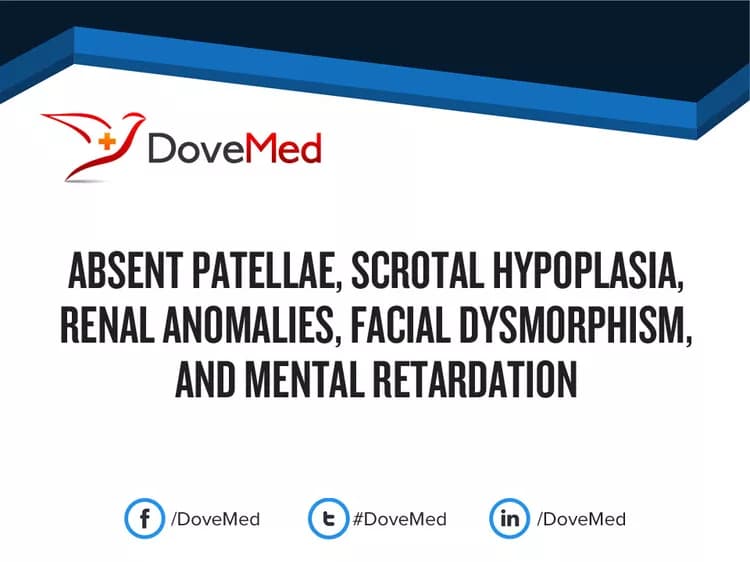
Absent Patellae, Scrotal Hypoplasia, Renal Anomalies, Facial Dysmorphism, and Mental Retardation
The topic Absent Patellae, Scrotal Hypoplasia, Renal Anomalies, Facial Dysmorphism, and Mental Retardation you are seeking is a synonym, or alternative name, or is closely related to the medical condition Genitopatellar Syndrome.
Quick Summary:
- Genitopatellar Syndrome (GPS) is an extremely rare and newly-reported genetic disorder. It is caused by mutations in the KAT6B gene. This gene resides on chromosome 10 and codes for a type of enzyme known as histone acetyl transferase, which appears to play a crucial role in the early development of bone and nerves
- Genitopatellar Syndrome has an autosomal dominant inheritance trait, where a single copy of the mutated gene is sufficient to cause the disorder. However, it must be noted that in all of the reported cases, no family history of GPS is known. The mutation causing the disorder appears to be within the affected individuals, and occurs as a result of ‘new’ mutations
- The chief symptoms of Genitopatellar Syndrome include missing kneecaps, genital abnormalities (such as underdeveloped scrotum in males and enlarged clitoris in females), abnormal facial structures (such as protruding or receding chin and narrowing of the head at the temples), delay in achieving developmental milestones and mental retardation
- Some potential complications ensuing from Genitopatellar Syndrome are breathing problems, feeding issues, and abnormalities in internal organs such as the heart and kidneys
- Currently, no diagnostic criteria exist for Genitopatellar Syndrome and it is still being evaluated. A healthcare professional may be able to suspect the condition based on some characteristic features of disease manifestation. When GPS is suspected, genetic testing for KAT6B gene mutations may be recommended for confirmation
- A team of healthcare professionals and specialists may need to be involved for the diagnosis of conditions affecting different organs. Additionally, it is has been reported that traits of this condition may be recognized through ultrasound imaging of the fetus during pregnancy
- Treatment options for Genitopatellar Syndrome are geared toward addressing the symptoms in order to offer relief to the affected individual or child
- There are no methods or guidelines for preventing Genitopatellar Syndrome at the present time. Genetic testing and ultrasound imaging of fetus during pregnancy may offer some information regarding the disorder
- The prognosis of Genitopatellar Syndrome is poor. Children with GPS typically die from the condition during the first 12 months in most cases
Please find comprehensive information on Genitopatellar Syndrome regarding definition, distribution, risk factors, causes, signs & symptoms, diagnosis, complications, treatment, prevention, prognosis, and additional useful information HERE.
Related Articles
Test Your Knowledge
Asked by users
Related Centers
Related Specialties
Related Physicians
Related Procedures
Related Resources
Join DoveHubs
and connect with fellow professionals

0 Comments
Please log in to post a comment.